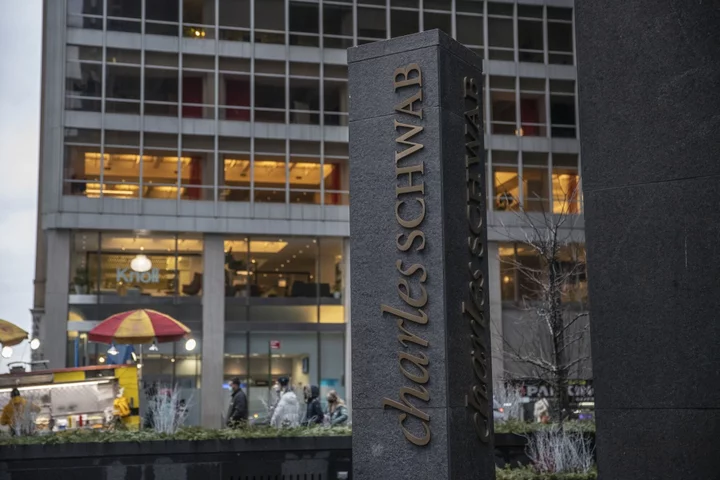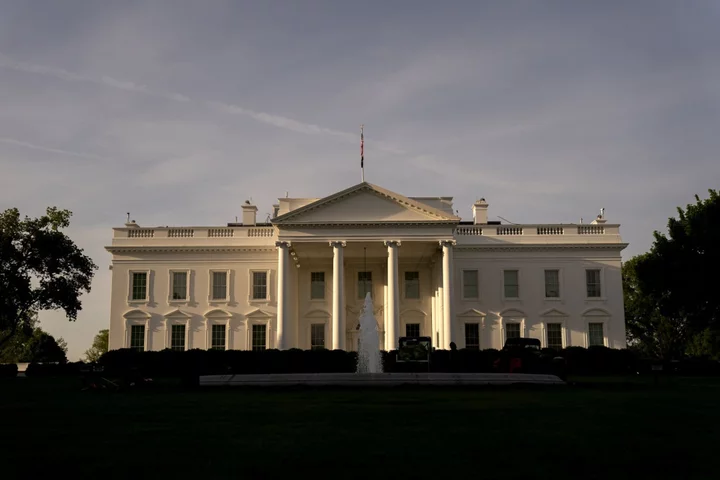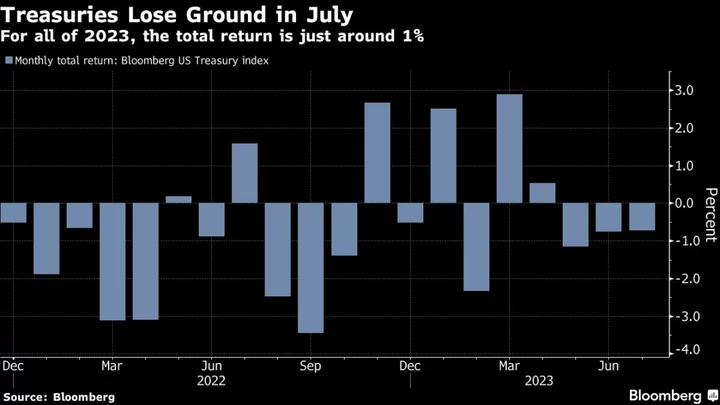US regional banks could look to tap the investment-grade market after Charles Schwab Corp. raised $2.5 billion in bonds last week, according to analysts at JPMorgan Chase & Co. and Bloomberg Intelligence.
Schwab’s debt offering may be followed by potential candidates U.S. Bancorp, PNC Financial Services and Truist Financial Corp., which may need to boost their debt footprints over the next three years by about $25 billion because of potentially higher requirements for total loss-absorbing capacity, BI analysts including Arnold Kakuda wrote in a note last week.
Read More: Charles Schwab Sells First Bond After US Regional Bank Crisis
The anticipated issuances come after regional lender Charles Schwab sold its first debt since the US regional banking crisis hit in March, triggered by the failure of Silicon Valley Bank and knock-on turmoil impacting other financial institutions. That turmoil had sparked widespread concerns about the stability of regional banks, as well as a “sea change” over how smaller lenders do business, Kakuda said in an interview.
While borrowing costs remain elevated, spreads on financial companies moved four basis points tighter last week, according to JPMorgan. That compares to non-financial firms, which were just one basis point tighter after heavy M&A-related supply.
Regional banks may face a proposal this year requiring them to issue long-term debt under total loss-absorbing capital (TLAC) requirements, according to Nathan Dean, a senior government analyst at BI. “Though the specifics of what regulators plan to do are yet unclear, we think they’re currently assessing whether to place these requirements on banks above $100 billion in assets.”
Credit strategists at JPMorgan also expect more regional lenders to line up fresh debt following the Schwab deal, according to a Monday note to clients. Issuing debt may ease the liquidity woes facing regional banks, they wrote, but not necessarily profitability concerns, citing current spreads and yields.
“Regional banks are dealing with a two-pronged problem, liquidity and profitability, and restoring access to primary markets is a necessary step forward on the former issue though one could argue that issuing debt at current spreads/yields is not helpful on the latter,” strategists led by Eric Beinstein wrote in the client note.
Charles Schwab, U.S. Bancorp, PNC Financial Services and Truist Financial didn’t immediately respond to requests seeking comment.
As far as the outlook is concerned, the worst is likely behind regional lenders, but pressure points still remain.
“Performance of these potential deals will be critical for the tone both within the overall sector and the broader market as well,” Beinstein wrote.









